If you are someone who travels by plane frequently, you might consider yourself an air transport know-it-all. But believe us when we say that you don't know the half of it. In fact, even we probably don't know the half of it. Yet, here we are with some new findings.
Most procedures and businesses that happen behind the scenes remain a mystery to many. Only the airport and airline staff actually know what's going on. However, we have sneakily found some that will definitely interest you. Read on to learn about some of your biggest concerns when it comes to flying. Bon voyage!
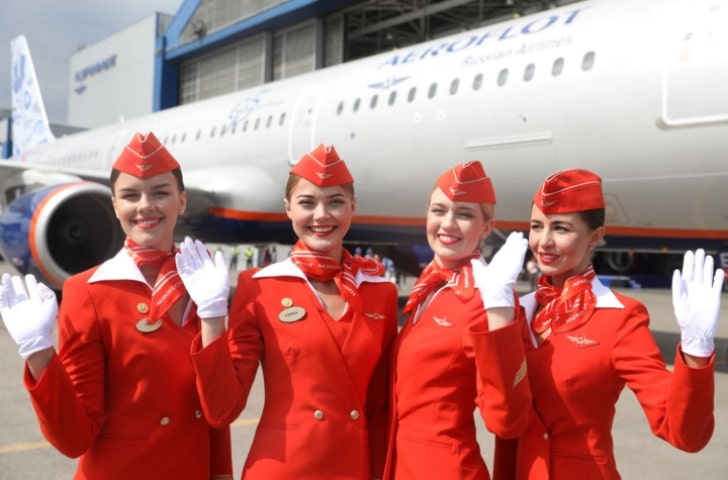
The Real Reason Behind Turning Off Electronics On Board

If you have traveled on a plane as a child, the concept of turning electronic devices off on a plane surely piqued your curiosity. You are not alone. Even most adults don't actually know the reason. Is the aircraft going to plunge and crash? Although flight attendants' pressure may make you feel like it, the real reason is far from your imagination.
The signals transmitted from electronic devices interfere with ground communication signals (air traffic control frequencies), which is crucial when taking off and landing. Another reason is that you don't want to drop your devices and hurt yourself during the turbulence.
How To Get Upgraded For Free?

To get upgraded to business or first class at no extra cost is the ultimate win in a flight. However, it's not a frequent occurrence. While there are certain things you can do to be considered for an upgrade, it's not always guaranteed.
If you are well-dressed and the cabin crew sees you fit for that one extra seat in business class, they could offer it to you. Also, asking for an upgrade can't hurt, so take notes for the next time. Furthermore, if you seem like a lovely person traveling solo, the odds of a free upgrade will be in your favor.
Cabin Crew's Most Hated Beverage
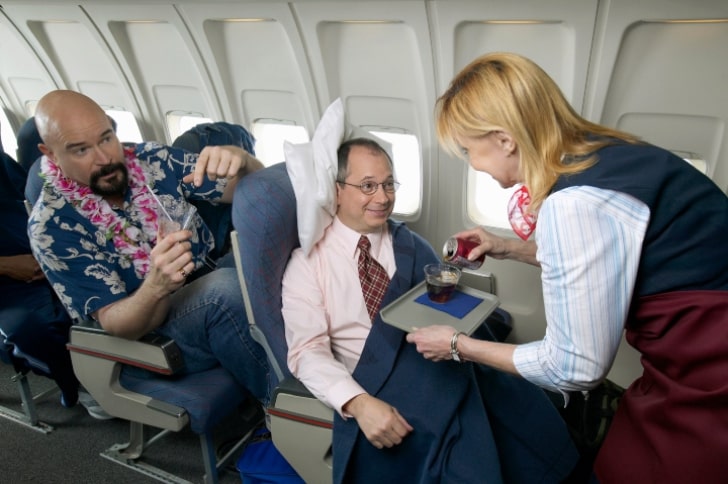
Have you ever been waiting for the beverage cart to arrive at your row, but it seems to take forever? It's definitely not because the flight attendants are making cocktails. Quite possibly, some may have ordered the cabin crew's most feared and hated drink—diet coke.
We can sense your confusion, wondering what's wrong with a diet soda. According to HuffPost, the ingredients in diet sodas make it more carbonated than regular drinks. Therefore, it takes an air host/hostess approximately three times longer to pour one diet coke without any overflowing. Do them a favor and order something else next time.
Can Flight Attendants Fall In Love On Air?
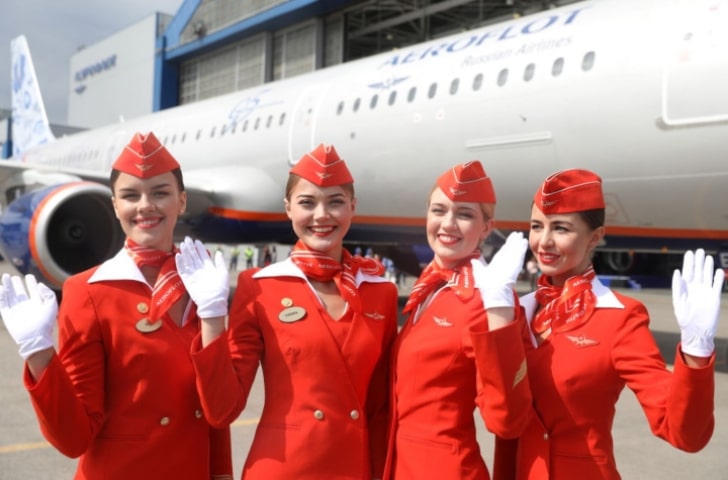
Dating a co-worker can be an action frowned upon in many places. However, not much thought has been put into the fact whether employees can date customers. In this case—are flight attendants allowed to get involved romantically with passengers?
Surprisingly, there is no policy in many airlines forbidding cabin crew from dating travelers. We think that's fair because everyone deserves love, and therefore should not be banned from giving and receiving it. As an airline steward/stewardess, one can encounter anywhere between 100 to over 300 passengers on air. We'd say the odds of meeting the love of your above the clouds are pretty good.
The Truth About In-Flight Meals
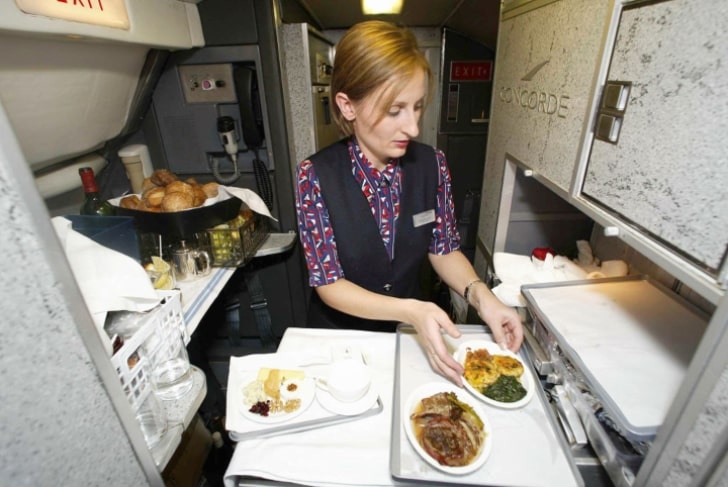
Many people can usually be very curious about airline procedures ever since they step into the airport. One big concern of them all is about in-flight meals: are they healthy, how are they served warm, and so on. Here's the truth. Airline food is prepared at least 12 hours prior to the flight, and non-perishables can sometimes be days old.
If you have family or friends who are crewmen, ask them why they take their own meals to work. In-flight meals are supposedly not the healthiest because of the high salt and sugar usage. As our taste buds go crazy at a higher altitude, the chefs adjust the seasoning accordingly.
Who Are Air Marshals?
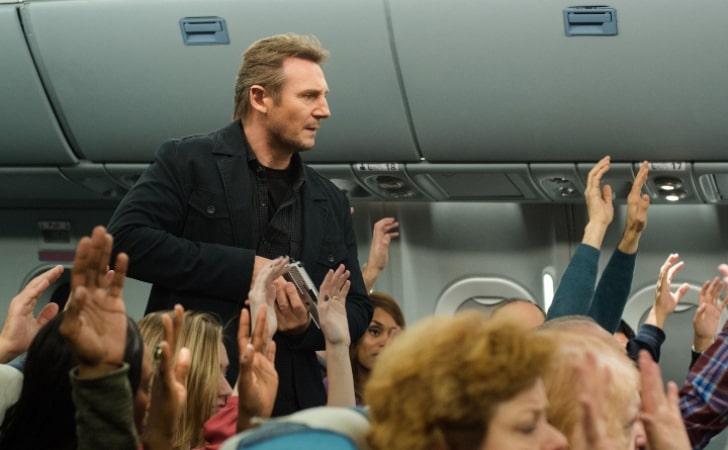
An air marshal is a protecting hand in an airplane whose existence is unknown. In other words, he is someone appointed to detect and prevent hijacking or any other terrorist and criminal activities on air. A very underrated job, don't you think?
Since 9/11, the employment of air marshals is widely encouraged. However, not every flight has one, and even if there is, he will be undercover. According to a study carried out by Harvard University, a majority of such officers are sleep deprived and not their best selves. Therefore, it's always good to keep an eye out for unusual behavior for your own safety.
Why Flight Attendants Are So Nice At The Entrance
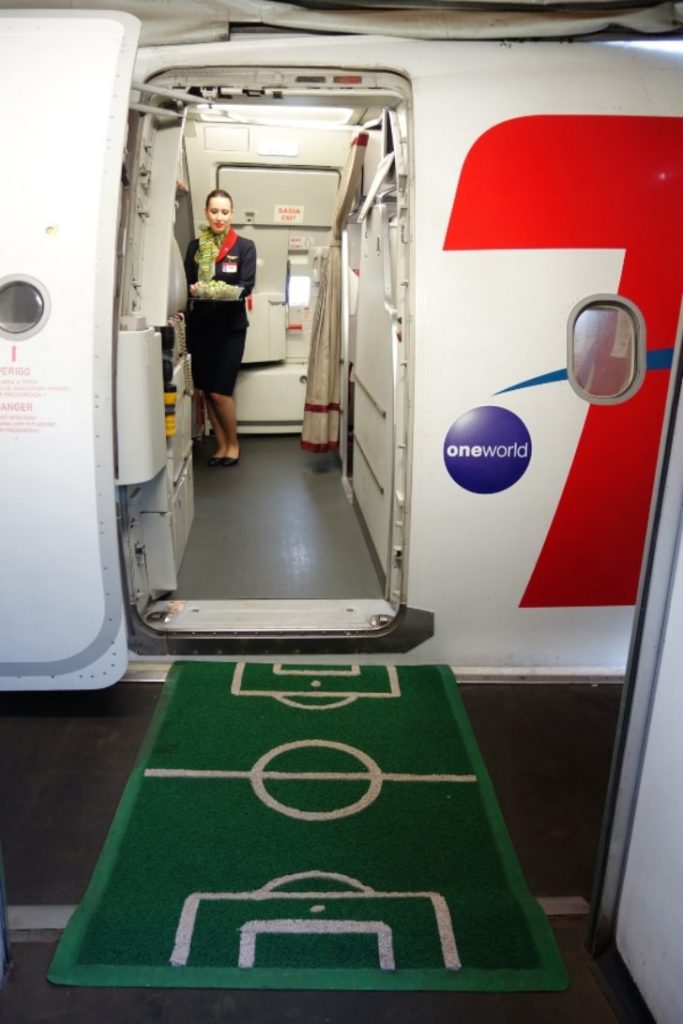
While air attendants welcome you with a big smile and sometimes cultural greetings, their reason for doing so is a part of a very sophisticated agenda. They have a clicker in one hand that can count the passengers while they board.
That's not all. During this procedure, the stewards/stewardesses mentally mark intoxicated, disabled, and fit passengers, and also identify troublesome and well-behaved people, for later use. The next time you're boarding a flight, make sure to greet the crew with nothing but pleasantness, and maybe you'll have a better chance of getting that free upgrade we talked about.
Is Air Travel Safe?
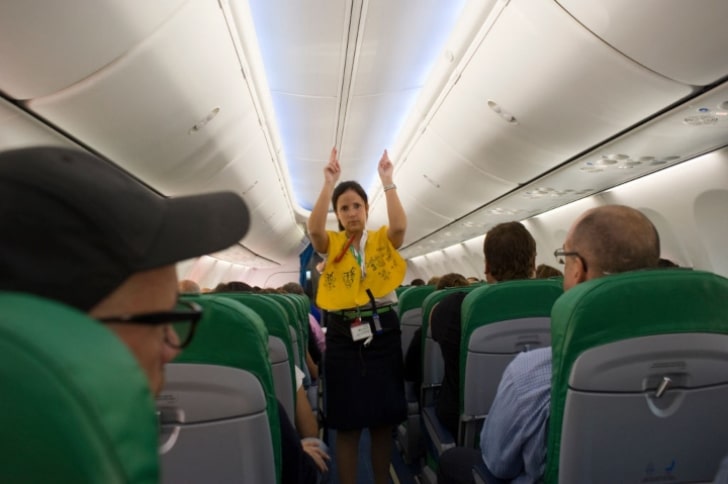
Every Tom, Dick, and Harry knows that an aircraft doesn't just take off as and when it pleases. Flights actually go through an extensive list of checks and tests, many mandatory and the others, random, before departure. After all, hundreds of lives would be at risk if they didn't.
Not everyone is comfortable with flying, and one of the biggest contributors to the fear is the safety. But did you know that flying is the safest means of mass transportation? With vast improvements made steadily over the years, plane manufacturers are now able to produce strong and reliable airships.
The Hidden Side Of A Cabin Attendant

If your ambition is to become a flight attendant, we wish you the best and hope you succeed. However, if you're only contemplating it, and really have no idea about the job description, then you're in for quite the surprise.
Sure, it sounds perfect to be able to travel the world and get paid for it. But doesn't it sound too easy? First off, air staff has to go through a rigorous amount of training. Secondly, their wages are not the best, given the scope of their job. Also, imagine the jet lag and the risk of being on-air most of your life. Let all that sink in before the decision-making.
Find Out If The Brace Position Really Protects You

We hope that at least once in your life, you have paid attention to the safety demonstration that aircrew so intensely takes you through. You may be sick of it if you're a frequent flyer. But believe it or not, the presentation contains vital information.
The safety measures during a rare occurrence of an unplanned landing are shown in it, and it involves the brace position. While there have been many anecdotes about the said position being a means for a quick death, they are, in fact, myths. In reality, the 'brace for impact' position minimizes any bodily damage and protects your important organs.
Does Excessive Luggage Cause Harm To The Plane?
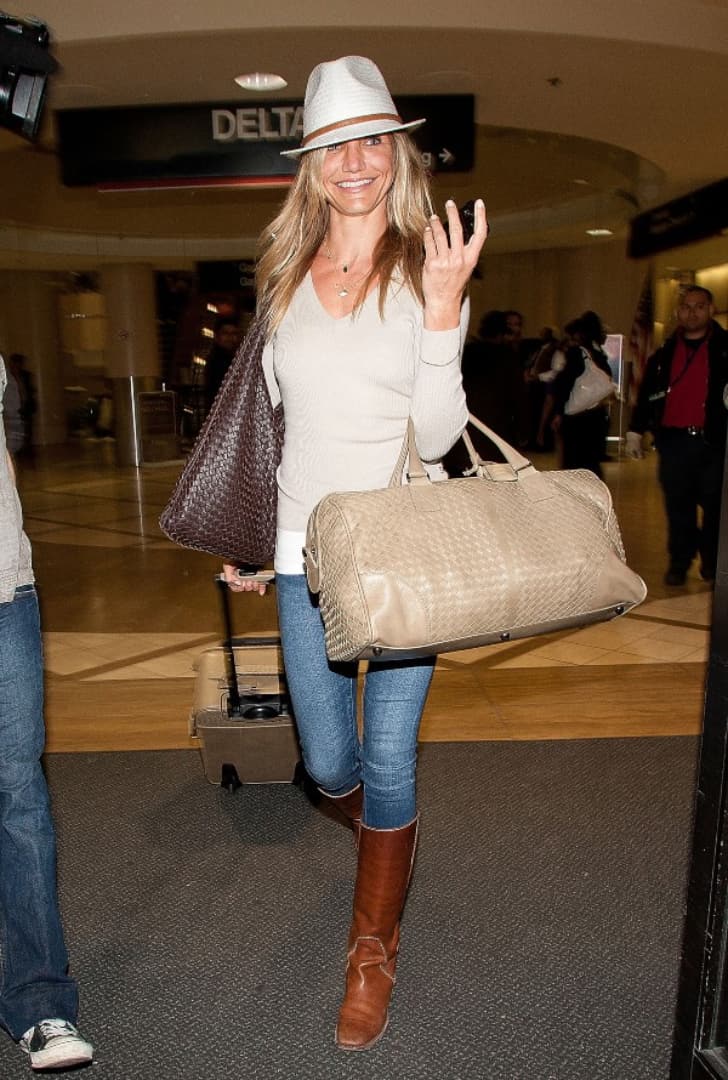
The question about whether excess baggage affects the flight's performance is one that nags many. To put it simply, it is not a contributing factor for a plane crash. However, other problems could arise if everyone starts to carry overweight bags.
For one, it could hurt the ship's balance. Normally, an aircraft carries the weight of itself, the fuel, passengers, and luggage. The heavier the load, the larger the volume of fuel it drinks up. Moreover, the airline could lose revenue from freight forwarders. In summary, there are consequences to carrying more bags—so, travel light!
Solutions For Extreme Medical Crisis On Air

There come seldom situations above the clouds when medical emergencies can occur. Luckily, all air hosts and hostesses are medically trained, perhaps not as much as emergency medical personnel, but adequate for basic states of distress. For instance, your cabin crew definitely knows how to perform CPR and the Heimlich maneuver.
If the circumstances are serious, the crew will seek help from any doctors or medical professionals on board. In an unfortunate situation where these are not options, the pilot will opt for an emergency landing, which can take around 15 minutes or more depending on the plane's geographical location.
What To Do And Not To Do To Seek Comfort On A Plane
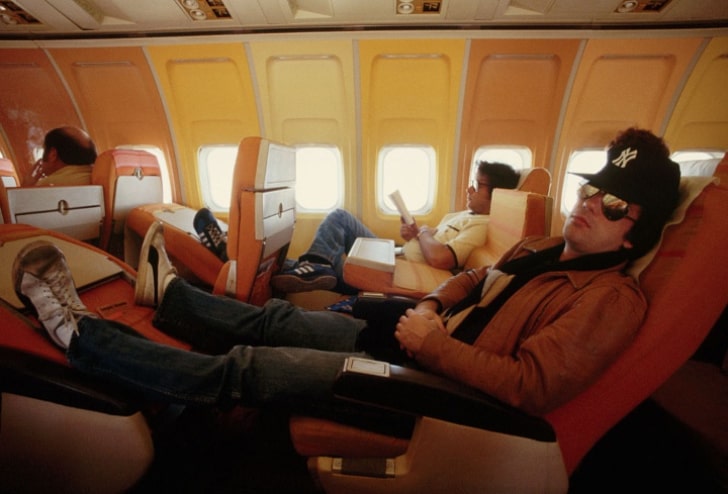
Long flights or just flights, in general, are not the most fun of experiences. Being cramped up in the same position can be exhausting, but travelers have discovered ways to make their flying experience better. For example, carrying the ever-so-famous neck pillow is now a part of almost everyone's journey.
While this is not a problem, there are certain things you should avoid doing even though they might give you the comfort and satisfaction you desire. Always try to keep your shoes on because you never know how horrendously gross the floors can be. We recommend wearing comfy and loose-fitting clothes, though.
Why It's Best To Be A Pleasant Person

You never know the positive impact that a smile can have on a stranger's day. In this case, a simple gesture like smiling with your flight attendant can make you feel better throughout the journey, as well as make his/her day.
Cabin crew is often tied to varying schedules and long hours of work. Therefore, the chances of them being hectic and sleep-deprived are pretty high. A simple display of kindness not only can put you in the good graces of the flight staff, but they may even offer you a better seat and a complimentary drink or two. Ergo, be friendly!
Is Airplane Water Safe For Consumption?
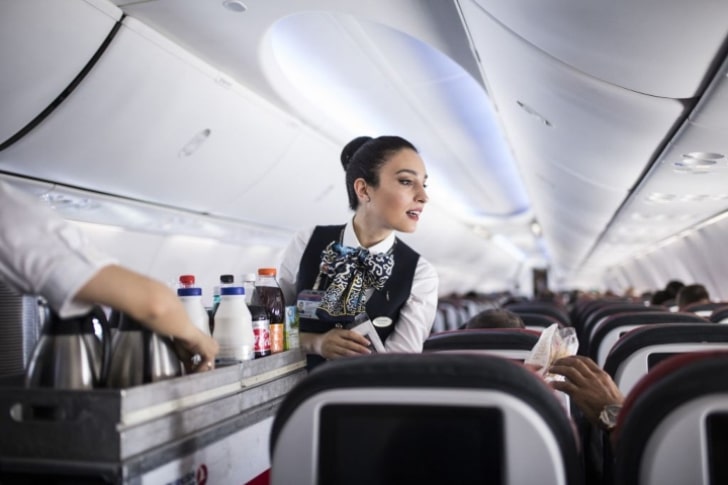
Since airlines don't allow anyone to take liquids when boarding a flight, at some point, you'll need a beverage—particularly if you're on a long flight. However, according to studies carried out by the Environmental Protection Agency, the water on airplanes is not 100% sanitary.
While it's okay to drink sealed or bottled beverages, drinking tea or coffee is not recommended as they are made with water from the plane. Also, this means that washing hands after using the lavatory is also not fully efficient. We suggest you carry a mini-sized sanitizer at all times.
The Truth About Airline Attendants' Lifestyle

From what you have gathered from movies, cockpit and cabin crews may look all fun and flirtatious. Surely, they enjoy doing their jobs, but there is a darker side to their lives that no one pays attention to. Firstly, they are exhausted most of the time.
When it comes to a job that does not have any fixed hours, especially one something like flight stewards/stewardesses, your sleeping schedules can get all messy. Let's not forget the overrated jet lag. While traveling places is great, the never-ending cycle of hectic weeks is a nightmare.
The Scope Of A Pilot's Job
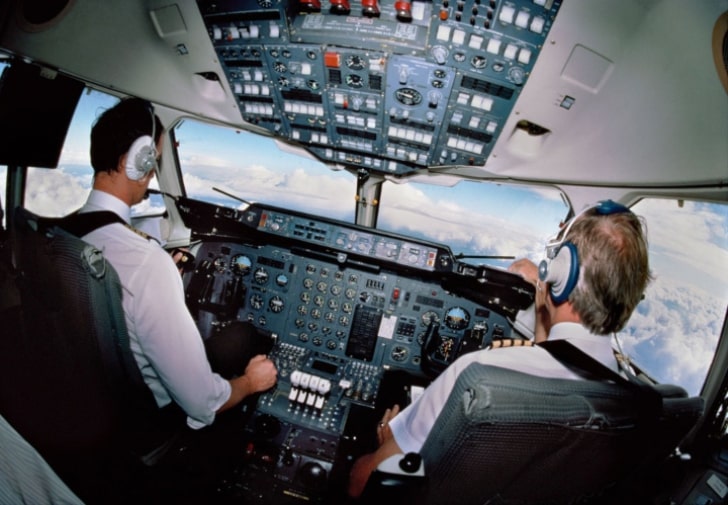
Have you ever given thought to the fact that the captain of the airplane is responsible for not one but hundreds of people's lives? Everyone tends to trust a complete stranger they've never seen before in their lives. The pilot-in-command is responsible for the operation and safety of a flight.
They obviously make decisions about technical emergencies, routing, and so on. However, a little known fact is that the pilot leads the rest of the crew and has the power to make decisions about troublesome passengers and in-flight medical emergencies. Pilots can also order to restrain and handcuff anyone deemed dangerous.
Are Airplanes Dirty?
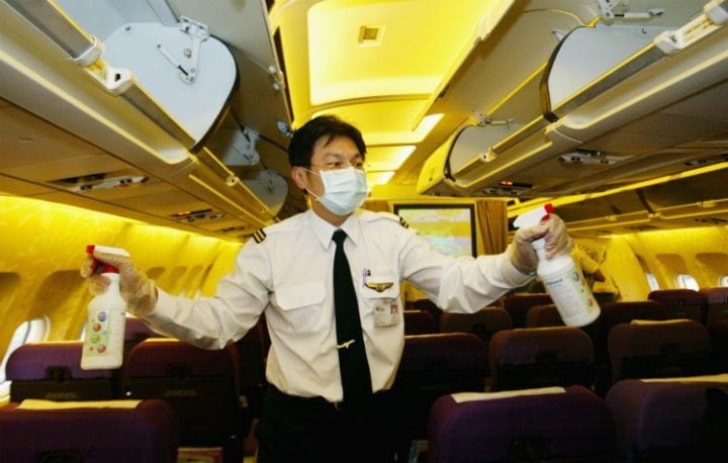
One would normally assume that a place he/she would spend hours would be clean, particularly an airplane. However, that isn't the case in reality. During the narrow window of time between flights, airlines would clean the lavatories, spot vacuum floors, and remove visible trash.
While a thorough cleaning procedure happens when there's more time, a more extensive detailed cleaning is only performed twice a year. According to a 2015 study mentioned by Forbes, seatback trays and overhead air vents are dirtier than the lavatories. We think its best if you take with you some disinfectant wipes and hand sanitizer.
Flight Attendants' Meals
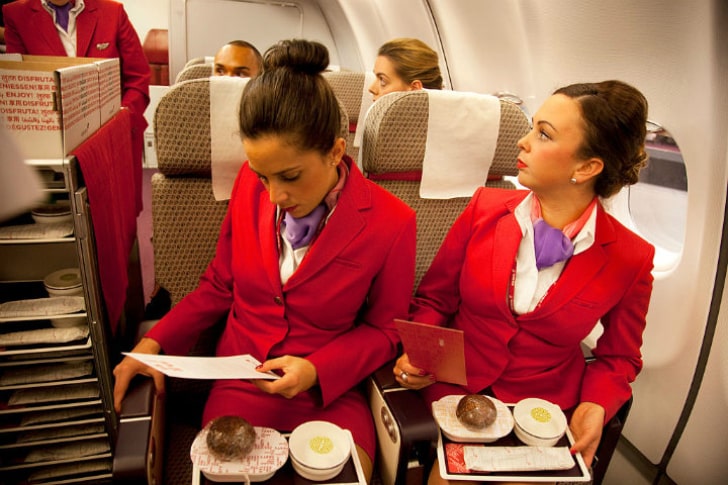
As we did mention before, most aircrews bring their own homemade meals to have during flights. But when this isn't the case, and the staff does decide to go for the pre-prepared meals, they don't end up having the same ones.
The main reason behind this is you don't want all of the flight staff to end up with food poisoning (a rare occurrence) at the same time. For instance, if both the captain and co-captain want to have the pre-prepared meals, the captain would get the first-class food and the latter business class.
Where Does Excess Airline Food End Up?
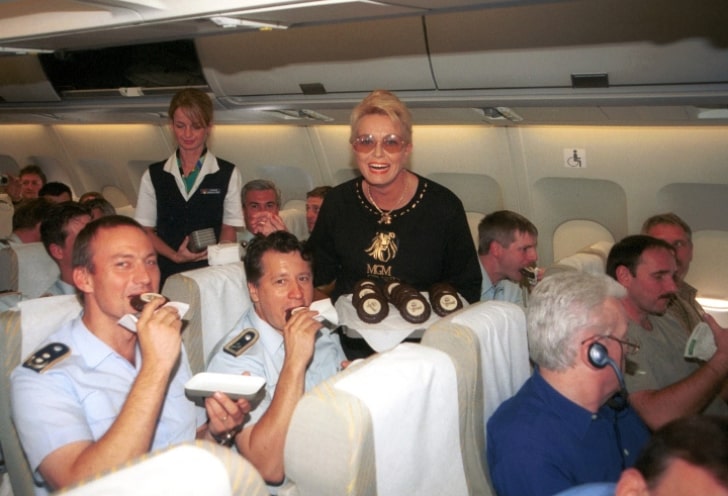
As we always wonder what buffets and restaurants do with excess food, the same question can apply to airlines too. Like most places, they tend to throw their grub out. Although it hurts to see food go to waste, it is usually the company's policy.
Airline companies have contracted mass catering services to prepare their meals. Even though they appear fresh, the food is usually prepared at least 12 hours prior and can be up to 72 hours old. According to international food safety standards, airline food can be frozen up to five days. With that knowledge, dumping the extras in the garbage doesn't sound so bad, does it?
Cabin Crew Protocol
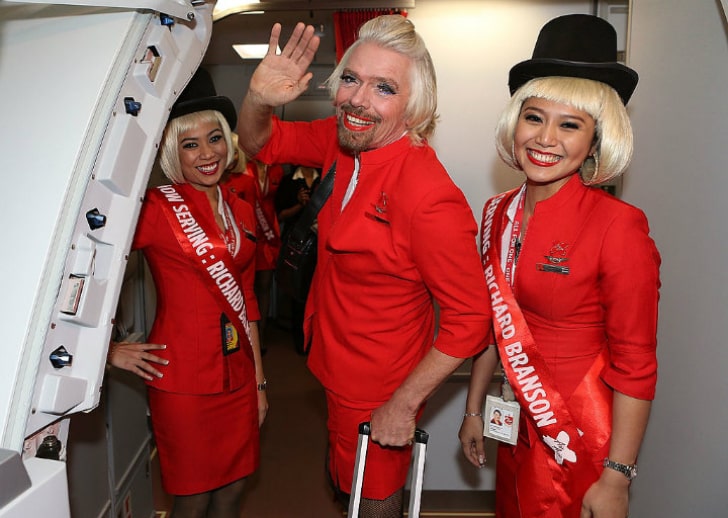
Flight attendants may be nice to all the time, but don't mistake them for babysitters, waitstaff, or servants. Sure, serving food and beverages and taking care of the passengers is the main part of their job description. But their responsibilities go way beyond.
Cabin crew has received medical training, which means they know how to administer CPR, use EpiPens, perform the Heimlich maneuver, and handle defibrillators. Furthermore, they probably can throw in a good punch because self-defense is also a big part of their education. Keeping any intruders away from the cockpit is also one of their main concerns.
Is Flying Safer Or Riskier?
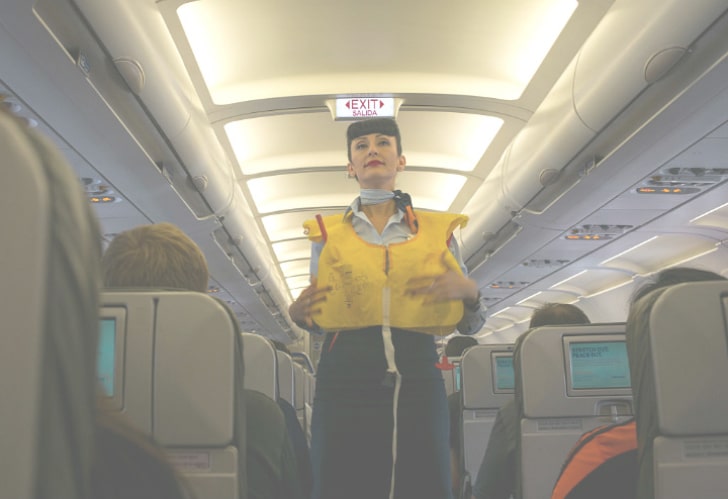
Regardless of whether you are traveling domestically or internationally, the most dangerous part about flying is the takeoff and landing. During this time, the entire control of the ship is in the hands of the pilot, and therefore, is open to the slight chance of human error.
However, you can find comfort in the fact that your life is at a higher risk when traveling on the road, rather than it is on air. According to research carried out by the US government, the odds of a motor vehicle crashing are 1 in 98, whereas an airplane accident is as rare as 1 in 7,178 times.
Can Air Staff Sleep On The Job?
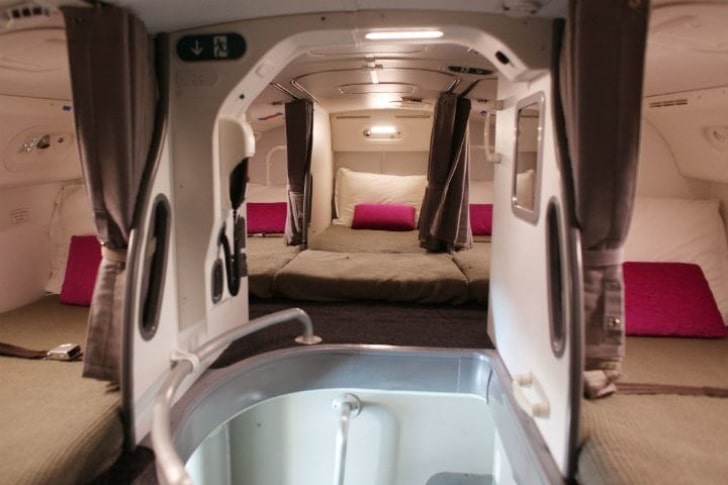
Normally, like in many other jobs, the cabin crew is not allowed to doze off while working. However, in the case that the flight is a long one, both the cockpit and cabin crews can have schedules to take turning sleeping.
Unlike the poor coach passengers, they do not have to nap while sitting upright on a seat. In fact, many flights have designated sleeping quarters for the staff. The cabin attendants' sleeping pods often contain bunk beds while pilots receive better facilities. Most Boeing 777 and 787 ships come with these rooms above or below the galley.
Can You Get Intoxicated On A Flight?
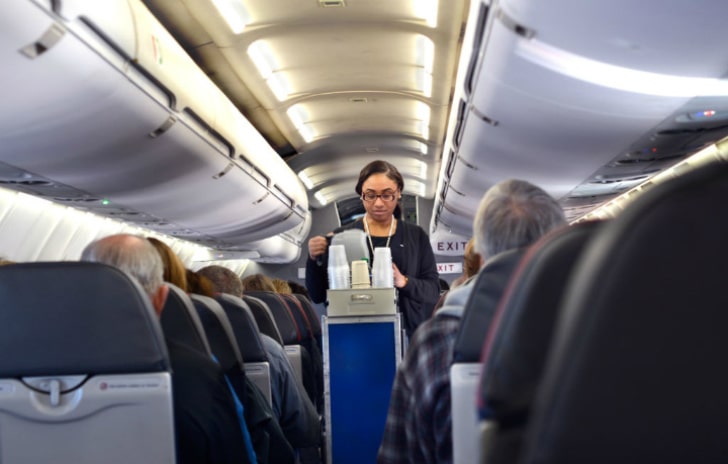
Just because alcoholic beverages are pretty expensive on land, and your weekend expenditure surpasses your budget, don't ever try to exploit the free drinks on a plane. Those mini bottles of alcohol and wine may be tempting, but the last thing you need is a criminal offense charge.
Yes, it is illegal to be drunk on board an aircraft. Furthermore, what you might not know is that the fluctuating cabin pressures can make one glass of alcohol intoxicate you a lot more than it would on land. Therefore, always be cautious and drink responsibly.
Take A Look At The Inside Of The Cargo Hold
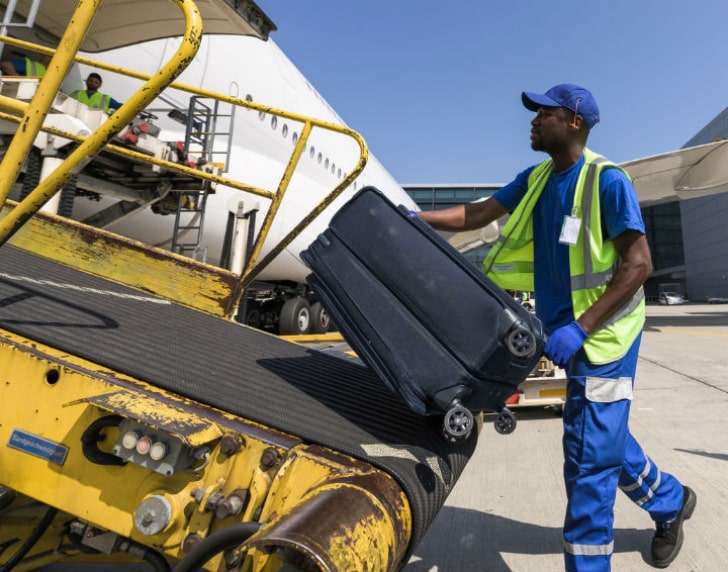
If you thought that the cargo hold of a plane only contained your checked-in baggage, you thought wrong. While waiting at the gate to board a plane, you may have looked through the glass walls to see handlers loading suitcases, boxes, and other things.
Did you ever take a minute to wonder what these other things might be? Since cargo forwarding is a whole other business from which airlines make money, heaps of kilograms of freight go in the plane's belly. In addition to that, animals and human bodies are also transported in the cargo hold.
The Real Reason Why Lights Are Dimmed For Takeoffs And Landings
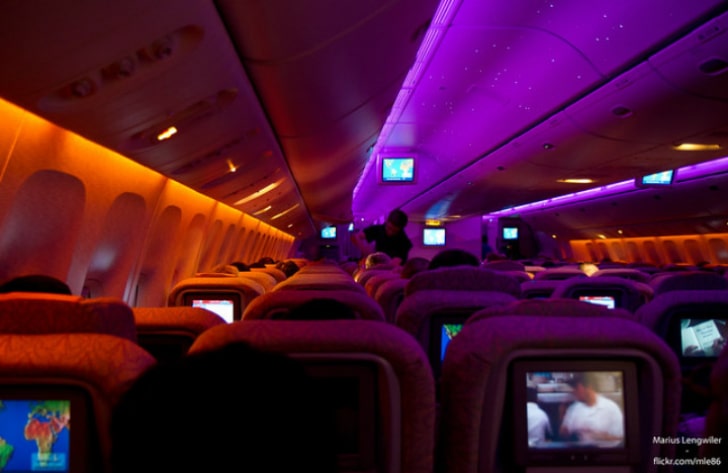
Cabin lights in an airplane are normally dimmed during takeoffs and landings happening at dusk, dawn, and any dark time. No, it's not to grant you a good view of the surroundings through the windows, and it's definitely not to give a romantic setting.
The real reason is technical, and it makes more sense. When the lights are dimmed, the eyes of everyone on board adjust to it. Therefore, in the unfortunate event of an emergency evacuation, the minute or two spent adapting to the loss of light can be saved.
How Do You Breathe In An Airplane?
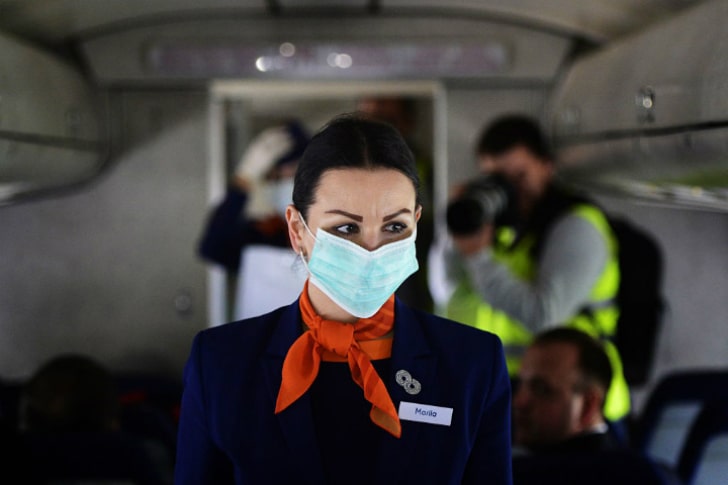
Being locked in a plane for hours with hundreds of people you don't know can be riskier than you imagine. Catching an airborne virus is the last thing you need while traveling—and it's worse if you're going on vacation.
Nevertheless, we are here to tell you that the air you breathe on board is not so bad after all. It's a mixture of fresh and recirculated air from the compressors of the engine. Since the compressed air is super-heated, it goes through air conditioning units for cooling before being distributed from the louvers and vents.
What Happens When Plane Engines Fail?
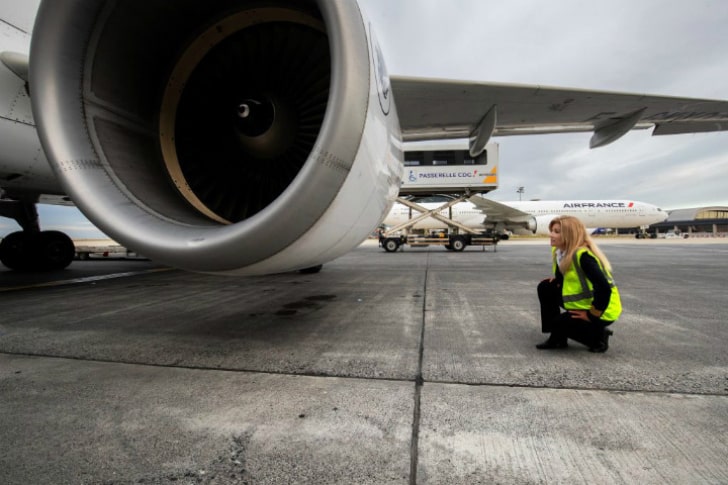
Believe it or not, plane engines fail a lot more often than you think. Not only can they function with one engine, but aircrafts manufactured with modern technology can also run when both engines have failed. There goes a sigh of relief.
How is this possible, though? Well, planes can glide well for long distances, approximately 1.5 nautical miles for every 1,000 feet of altitude when the engines are out. Never fear, because the pilots are well-versed and even experienced through virtual reality to deal with such subjects today because plane accidents have been frequent lately.
The Truth About Flight Blankets and Pillows
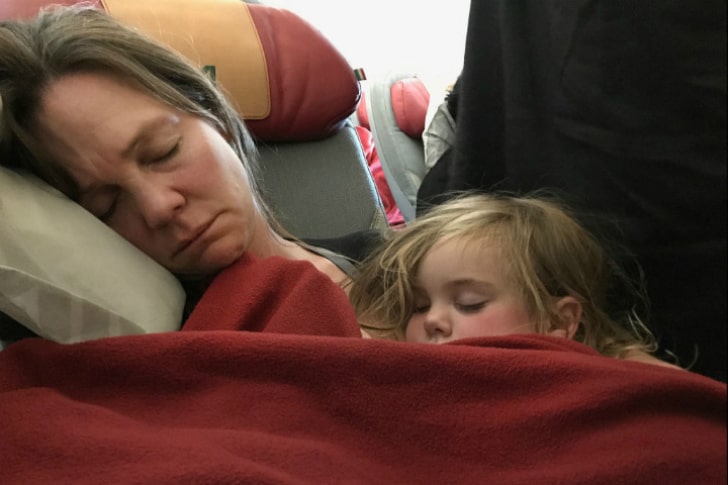
The tray tables and air vents can be the dirtiest parts of the flight, but what about other provisions? We are talking about blankets, pillows, and headphones. The clean freaks particularly won't like this part. You don't always get fresh blankets and pillows.
Although they come wrapped in plastic, these things are often reused between flights. Therefore, you are probably getting cozy in a blanket that multiple others drooled in. To be on the safe side, take a scarf with you to keep you warm, carry your own headsets, and get a neck pillow. End of story!
Things To Know When Flying With Your Pet
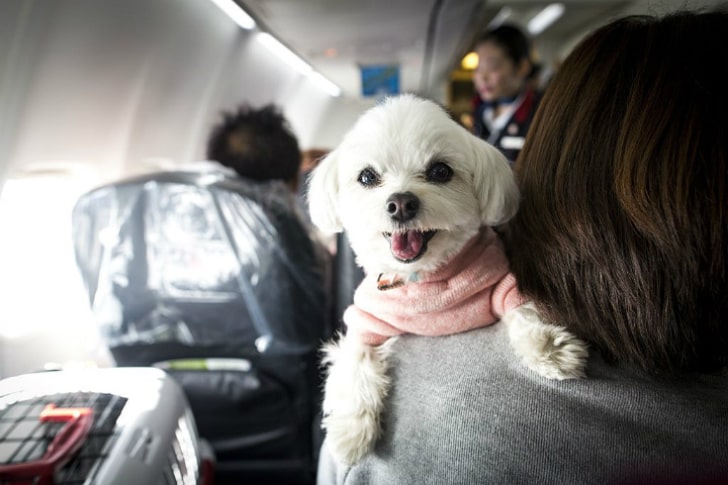
If you are an animal lover and want to travel by air with your pet, it is possible. Pets are usually locked in their cages and placed in the "hold 5" at the rear part of the cargo below the cabin.
We know you're wondering about the temperatures and their comfort. Fear not because the said cargo compartment has the same temperature and pressure as the cabin. Therefore, your friends with paws and fur are comfortable while traveling. However, note that the turbulence and engine noise can harm these pet buddies in unexpected ways.
The Reasons Behind The High Cost Of Traveling
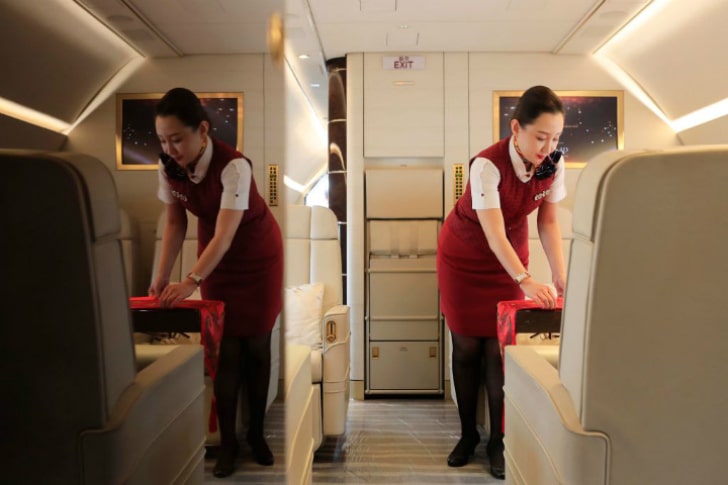
While many people, especially youngsters, have made it a life goal to travel, it seems almost impossible. Of course, it's because of the obvious reason, which is increasing prices. Traveling abroad nowadays seems like a big challenge given the price tags of airline tickets and even accommodation.
One of the main reasons is the rocketing prices of fuel. Like any other vehicle, an aircraft needs to fuel up before takeoff. However, the only difference is that airplanes require gallons of fuel. Surprisingly, airlines don't make much of their profits from tickets, but rather from baggage and cargo fees, seat upgrade charges, etc.
How Must A Cabin Attendant Look?

Believe us when we tell you, flight attendants back in the day had it extremely tough. Airlines would impose rules in regards to their height and weight, not allow tattoos, and would not allow the crew to have acne (as if it was a choice).
While the biased days are long gone, there still are certain controls as to how one must look. For instance, the height is compulsory because they need to be able to reach the overhead compartments. Furthermore, professional attire and etiquette should be prioritized at all times.
Chances Of Survival With Drop-Down Oxygen Masks
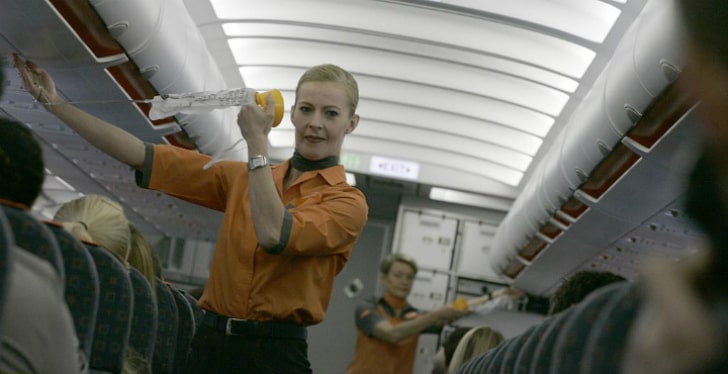
If you are a frequent flyer, you are probably sick of hearing the safety instructions for the millionth time. Even though the chances of putting them into use are rare, it's precautionary to know what exactly do to during an emergency.
The masks that drop down during a breach of cabin air takes up a vital part of the speech. Have you ever wondered how long these drop-down masks can supply you with oxygen? The answer to that is approximately 15 minutes. It may not seem like much, but it surely is sufficient time for the captain to descend to an altitude that allows breathing.
Intimacy Among Airline Staff
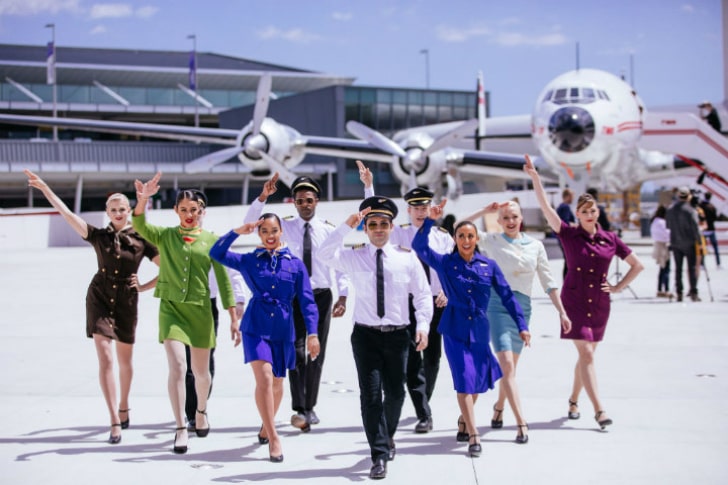
Cruising Attitude by Heather Poole, a former flight attendant, is a good book to read if you want to know all about the lifestyle of cabin staff. Although you might think that flight attendants hooking up with pilots or each other is stereotypical, it still happens pretty often.
With their tight schedules, working weekends and holidays, maintaining personal relationships is an added stress. Since it is very difficult for them to maintain a healthy relationship with a lover/partner who is not in the industry, most airline staff tend to date colleagues. Plus, they often do work out.
Secret Airline Codes
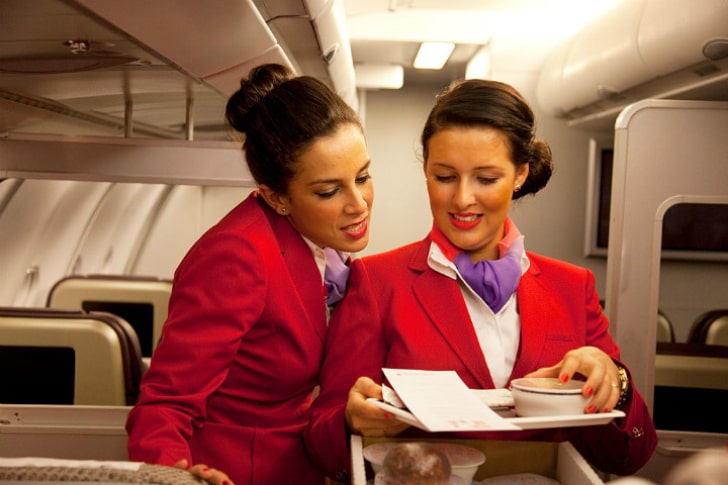
From the time that you board a plane, you will see cabin attendants running around performing their duties and responsibilities. At certain times, they may need to communicate with each other without the passengers eavesdropping on their conversations.
Naturally, as you would imagine, they have developed certain codes. The chimes and beeps you hear on-board an aircraft may not mean much to us, but they sure do to the staff. Pilots would beep the cabin staff to notify them of any upcoming turbulence, emergencies, or when someone tries to force themselves into the cockpit. Also, did you know that attendants have a secret code to identify attractive passengers?
Are Budget Airlines Less Safe?
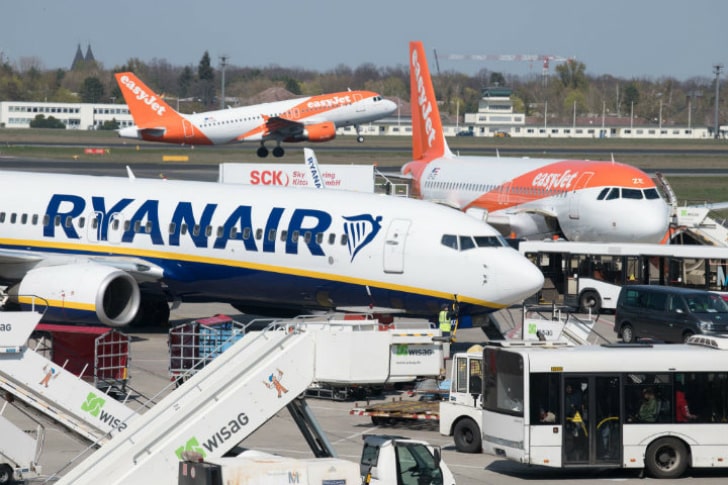
One of the many things that can bother you when purchasing a budget airline ticket is safety. Are budget airlines cheaper because they are less safe? Fear not because you are a miles away from the truth. Compromising the safety under any circumstance is not an option.
Therefore, when you get a budget ticket, here are a few things to remember to keep your confidence. Airlines often reduce prices by cutting down on privileges like legroom, check-in baggage, and even meals. If you need to add them, your payment will be nothing short of regular prices.
Safest Area To Sit On The Plane

The fear of flying can be deeply rooted in the hearts of some. If you find yourself overthinking about every little detail concerning your flight, you are probably one of them. One thing that can help you worry less is to know that you have better odds of surviving.
Many studies, including one that Time magazine carried out in 2015, proved that the fatality rate of the rear third of an aircraft is comparatively lesser than those of the middle and front thirds. Furthermore, while you may like to have a window seat, middle seats are perceived much more guarded.
Computer-Controlled Air Travels
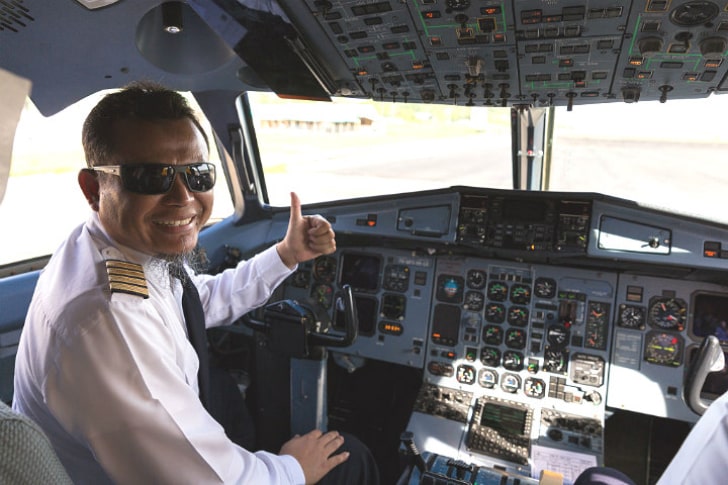
You may want to buckle up for this one. Most flights are run by the autopilot function on air. Although this does not mean the cockpit is empty above the clouds, typically, 90% of an air journey is done through auto-piloting.
The pilot-in-command will be responsible for the takeoff, landing, and taxiing to the gate. However, many modern flights come with an auto-landing option. This makes us wonder if airplanes will completely be automated in a couple of decades. It's always safer to have an extra pair of hands to save the day in case anything goes wrong.
The Perfect Hour To Fly
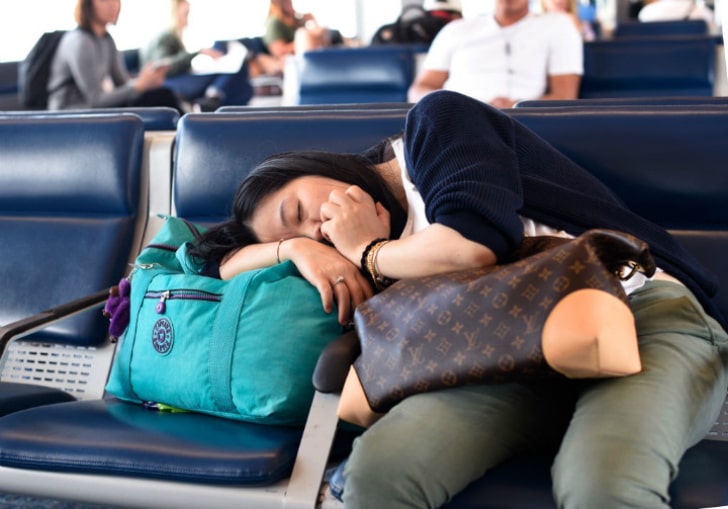
If you really want to know the best time to fly, ask an air host/hostess. Because let's be real, they are the ultimate frequent flyers, and therefore, may have some valuable tips and tricks. Flights will be less crowded during the early hours of the morning.
Moreover, the weather is also likely to be in your favor if you book an early morning flight. Another great thing is that they don't break the bank. Early flights are cheaper and usually have shorter queues at the check-in counters at the airports.
